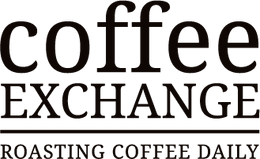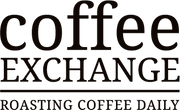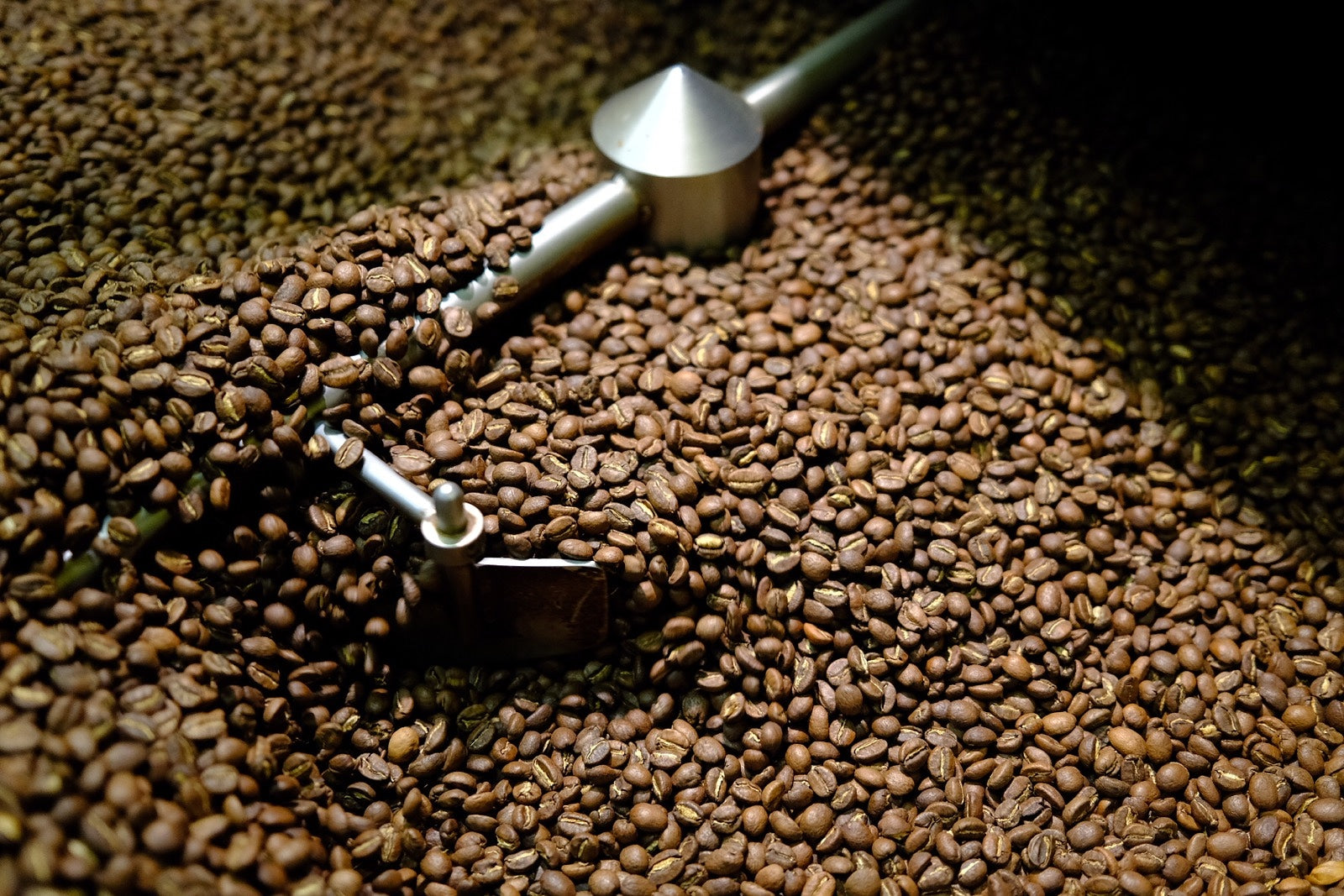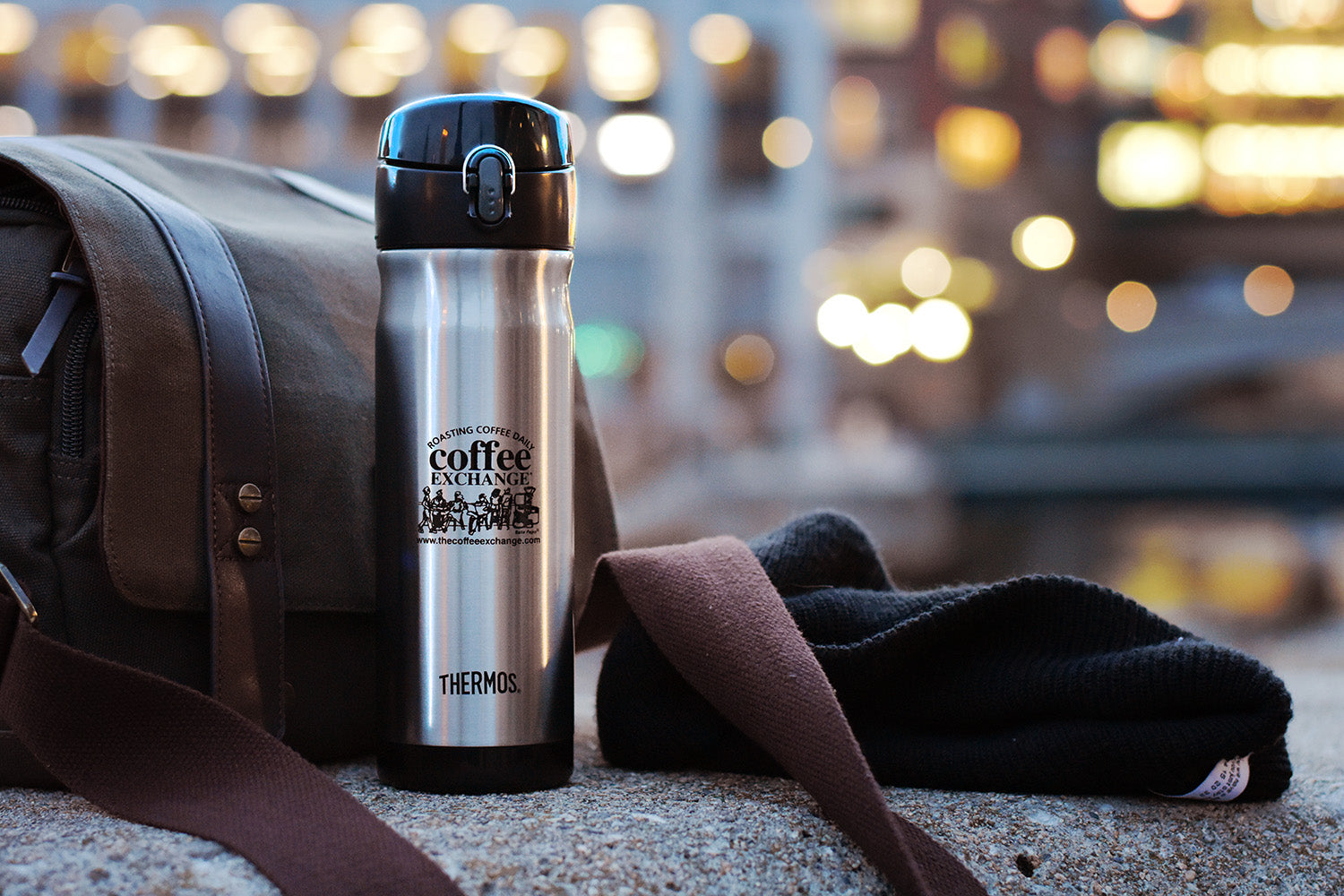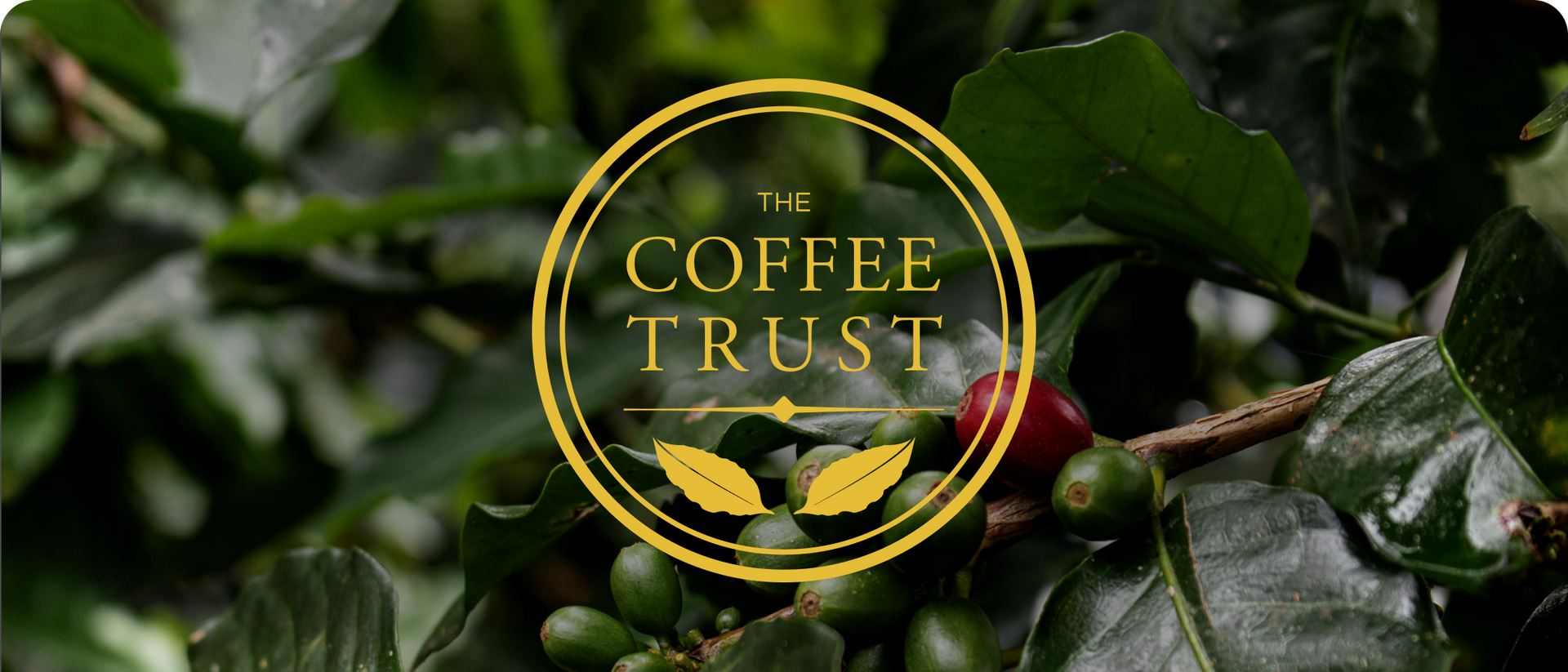Coffee Exchange... What's in a name?
Back in the day, my family's 3 three housewares businesses and one Jewish delicatessen had been the talk of Providence. But, in 1983 the bottom fell out and we fell upon some very hard times. And when we fell, we fell hard. My dad, Mel, was injured, had a heart condition and was unable to work anymore. My mom immediately went out and got a job. I did the same. My brother Bill, who had been having a love affair with coffee since he was 19 years old, was broke, like the rest of us. But a long time friend, who was far from wealthy, scratched together $4,000 and offered Bill a loan. From the ashes, Coffee Exchange was born on Wickenden Street in the Portuguese “Fox Point” district of Providence.
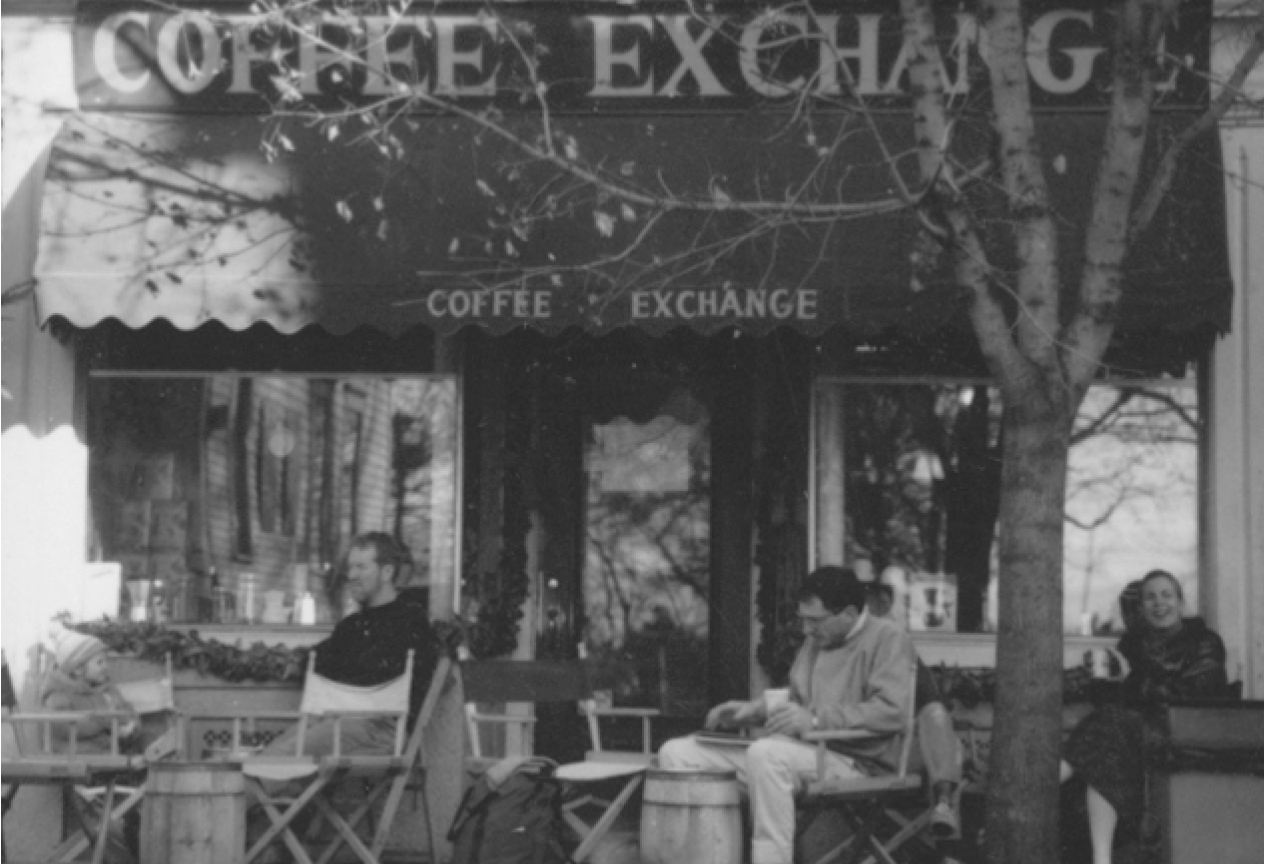
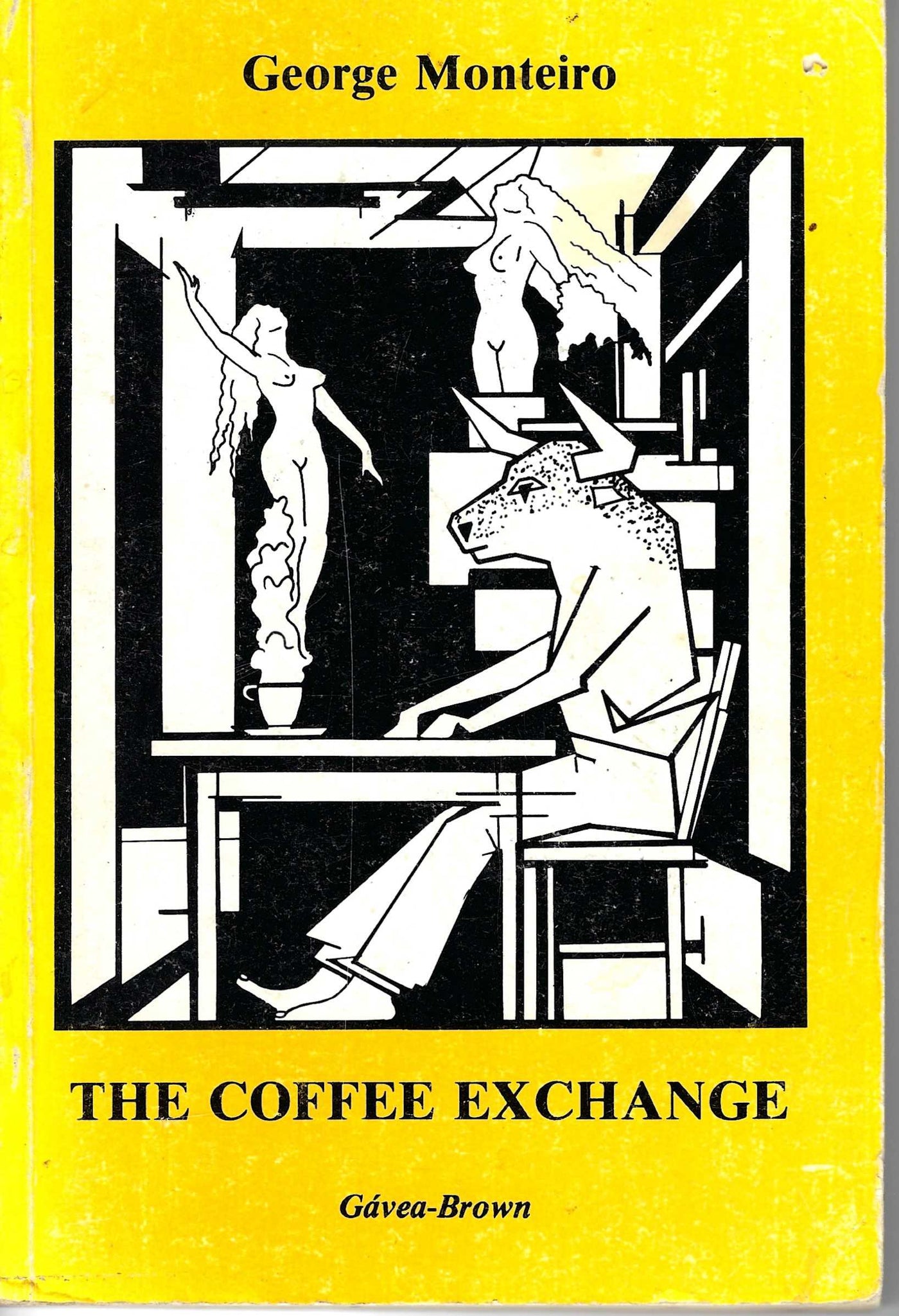
About 6 months after opening, a man walked into Coffee Exchange and handed Bill a book. The man said he’d purchased the book several years before from a used book store that he thought had been in the same location as Coffee Exchange. Like everyone else in Providence, the man knew my family's colorful history, recognized how the coffee shop was born from the ashes of our family businesses, and felt it only fitting that the book - a collection of Brazilian Portuguese poetry, translated into English, should find its home at Coffee Exchange. You see, the name of the book was The Coffee Exchange.
Bill thought the connection between the title of the book and the name of the tiny coffee shop was curious, even cool. But no more than that. He put the book aside. I picked it up and read a few of the poems, which I found interesting, but not serendipitous. Still, the question lingered for years: Why would a book of Brazilian Portuguese poetry translated into English be titled The Coffee Exchange?
Bill had dreamed of having a bustling cafe for years, but at the time, Coffee Exchange did not serve any over-the-counter beverages at all. An espresso bar and cafe were financially out of the question. Coffee Exchange sold roasted coffee only, purchased from a wholesale specialty coffee roaster. However, Coffee Exchange began to grow, and a few years later, Bill was able to buy an old Eterna Espresso machine. Then he built an espresso bar, and added a few tables and chairs. Mel insisted that he put some tables outside, adding a European flair to what finally became the realization of Bill's dream - a bustling cafe.
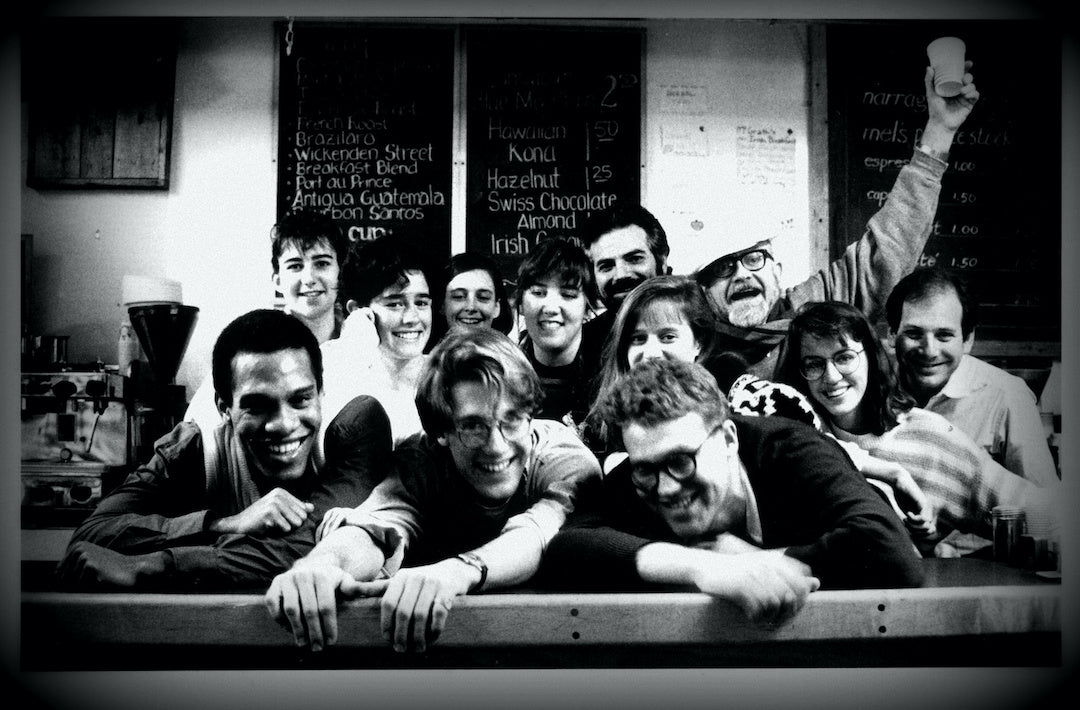
After several years, coffee had pulled Bill's entire family out of the financial abyss to a level of financial stability. Bill loved Coffee Exchange, and thought he would be there for the rest of his life, but, over the next several years, he had a number of experiences that led him to Guatemala where he met coffee farmers for the first time. That's where he witnessed the relationship between coffee and poverty. As a result of his experiences in Guatemala, and while continuing to work at Coffee Exchange, he started a non-profit organization with two friends to help coffee farmers and their families improve their lives. His lifelong love affair with coffee was deepening, and he was beginning to be called to its roots. One of the last things Bill did before he stepped out from behind the coffee counter to work full time for coffee farmers, was to purchase the building across the street, along with a brand new Deidrich 12K coffee roaster.
I took over the helm at Coffee Exchange in 1992. I began roasting coffee daily for Coffee Exchange. I learned about the art and the science of roasting coffee. But mostly, I learned how to implement my dad's philosophy of business. Mel's Mantra: "The customer is not always right. But, the customer is always the customer." I understood that our business was only partially ours. We were in a partnership with our customers and we needed to ensure that the experience our customers had at Coffee Exchange was our most important priority.
Roasting our own coffee added a new dimension to Coffee Exchange, with the 12K Deidrich situated right on the floor and visible to all customers. Discussions with the roaster as our coffee was being roasted became a natural part of the customer's experience at Coffee Exchange.
When Coffee Exchange was operating on all cylinders, customers would see pallets of green, unroasted coffee stacked in front of the building waiting to be "downloaded" into the cellar and, at the same time, lines of customers waiting to place their orders. These “conversations over coffee”, literally by definition, filled Coffee Exchange and added to its dynamic energy - to the excitement - and "brewed" a mysterious aroma within its sacred walls, unique only to Coffee Exchange. Coffee Exchange became more than a second home for customers to appreciate and gravitate to, as in a haven, or oasis or safe port in the storm.
Several years earlier, we’d heard through an odd connection with a Brown University linguistics student that there’s a phrase in Portuguese which loosely translates to “coffee exchange.” Tania Rocha, our manager of Portuguese descent, discovered the phrase "Bate Papo" (pronounced Bot chay Bop poo), which literally translates to something akin to “flapping one’s jaws”. Culturally and idiomatically, in Brazilian Portuguese Bate Papo translates to “a friendly conversation over coffee”. Flapping your jaws over coffee. As soon as I learned of the phrase, I knew it sang the poetry of Coffee Exchange. "A friendly conversation over coffee" so epitomized Coffee Exchange, that over 30 years ago, I incorporated "Bate Papo" in Coffee Exchange's logo. The phrase is faint, hidden almost, but legible, just under the roaster in the line drawing. Like "Bate Papo", Coffee Exchange is an experience over coffee.
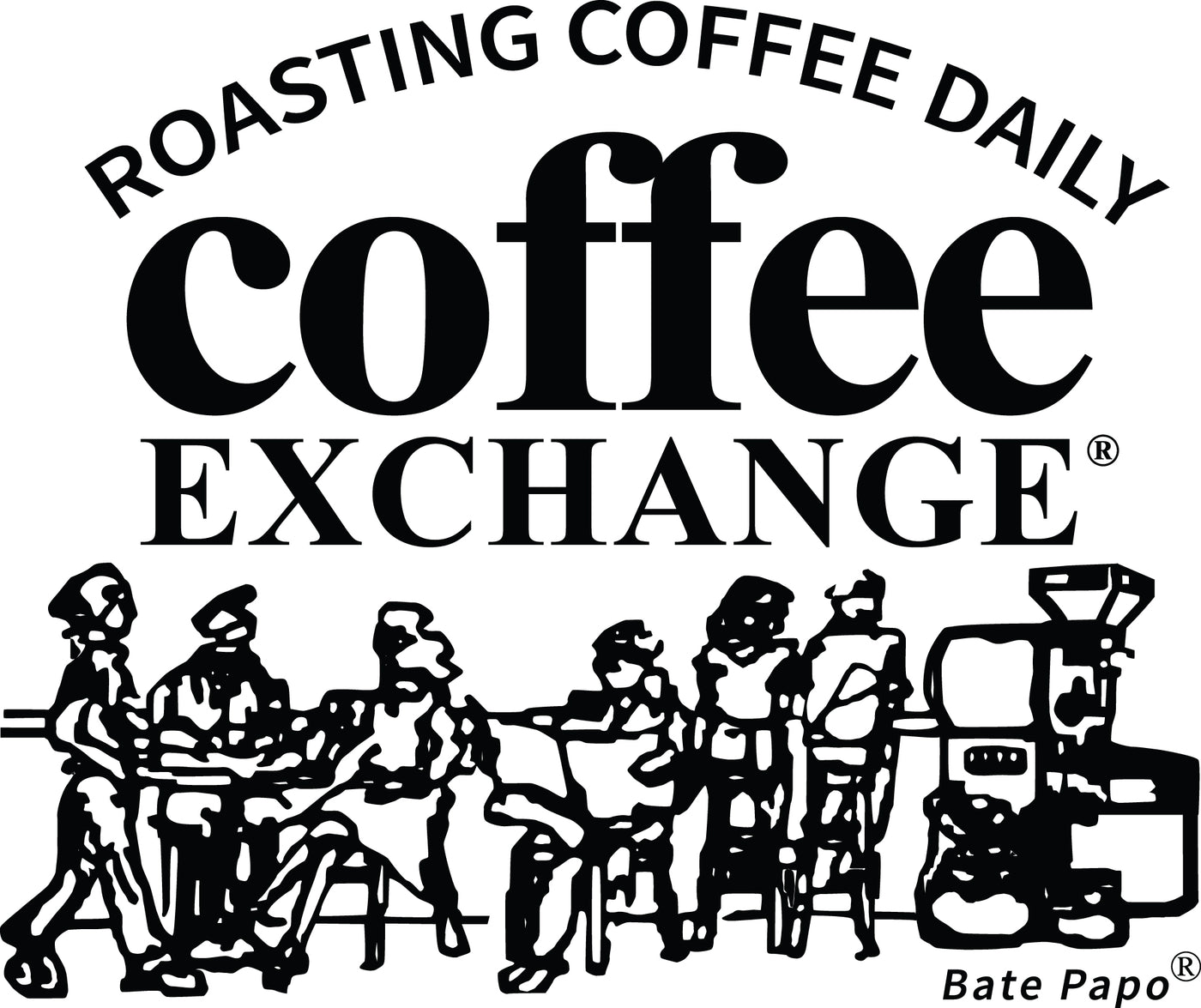
Of course, the serendipitous nature of Bate Papo is hardly hidden. All day long, every day, it fills Coffee Exchange with intense conversations, or with the solitary alone-ness that feels safe in its own space. And within this space, with the aroma of freshly roasted coffee and music playing, the sense of being “at home” for at least a moment, or an hour, is palpable. A good friend told me once: “it’s like upon entering the place, you know you’re going to feel enriched when you leave.” That’s what a conversation is all about, right?
WELCOME TO COFFEE EXCHANGE. WE'RE 40 NOW!
Coffee Philosophy
In all aspects of procurement, Coffee Exchange strives to do right by the coffee farmers, and the regions where our coffee is grown. We promote organic coffee growing practices in which no artificial pesticides or synthetic fertilizers are used, creating stronger and healthier crops, and protecting farmers and their families from carcinogenic risks.
Our roasted coffee is the result of years of experience and dedication to the best roasting practices. Depending on the origin, growing region, and style of preparation, every coffee carries a unique set of physical and flavor characteristics. As coffee roasters our job is to identify and highlight each of those special flavor characteristics that define a particular coffee, and determine the roasting methodology that will enhance these flavors. All Coffee Exchange coffee, whether it’s our Single Origins, Blends, Limited Offerings or Decaffeinated coffees, all are painstakingly managed so as to maximize freshness and standardized roast profiles.
CHECK OUT OUR SINGLE ORIGIN SELECTION HERE
THE COFFEE TRUST
The Coffee Trust’s Executive Director and Coffee Exchange co-owner, Bill Fishbein, has worked in sustainable development for over 30 years. In 2008, he founded The Coffee Trust with the mission of helping “indigenous coffee farmers improve their agricultural practices, diversify their incomes, and raise healthy families.” Working within the municipality of San Gaspar Chajul, located in the Western Highlands of Guatemala, The Coffee Trust focuses on economic, agricultural and educational programs, designed alongside community leaders. Believing that communities know best what they need, The Coffee Trust provides the framework and guidance to help these communities design successful and self-managed projects, such as Honey and Coffee projects, Women’s Savings and Micro-credit projects and providing higher education scholarships to qualified Chajulense youth since 2009.
Knowing the importance of giving back to the communities that provide us with some of the world’s finest coffee, we are committed to supporting The Coffee Trust and their work with farmers and their families in San Gaspar Chajul, Guatemala. There are several ways we express that commitment. Each year, and for over 30 straight years, on New Year’s Day, we hold our 1st Cup fundraiser, a community event dedicated to coffee farmers—Our suppliers donate their goods, our baristas their time, customers, local merchants and artists donate hundreds of items for a silent auction, and every year every dollar we bring in goes directly to The Coffee Trust.
Coffee Exchange, and our customers and staff, have been proud supporters of The Coffee Trust since its inception, and we are proud to sell Guatemalan products that support The Coffee Trust including: coffee (American Roast & French Roast), chocolate bars, honey, and textiles from Chajulense de Mujeres (a women's group in San Gaspar Chajul).
COOPERATIVE COFFEES
For over 20 years, 95% of our green (unroasted) coffee comes from Cooperative Coffees, a green coffee importing cooperative comprising 25 community-based coffee roasters in the U.S. and Canada, who are committed to building and supporting fair and sustainable trade relationships with coffee farmers. Our goals are (1) to focus our businesses along Fair Trade and Organic principles and securing some of the world’s finest coffees, and (2) to assist our farming partners in improving infrastructure, providing technical assistance and developing procedures to improve both the quality of their products and the health and safety of their families and communities, as well as ensuring they receive a fair price for their coffee. Since 2019, Coop Coffees added our member-funded Cooperative Coffees Impact Fund to help coffee farmers deal with Climate Change, concentrating on the Cool Farm Tool, reforestation, carbon sequestration, and other initiatives, and In response to current global challenges, the coop transferred $160,000 to our producer partners to support their efforts in confronting the impacts of Covid-19. More recently, the Cooperative Coffees Impact Fund has helped farmers from Peru to the Democratic Republic of Congo recover from landslides and drought.
